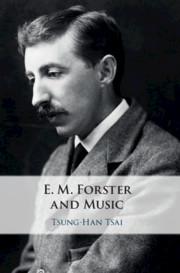Refine search
Actions for selected content:
6 results
Chapter 40 - Communism, Socialism, and Pacifism in British Politics
- from Part V - British Sociocultural, Religious, and Political Life
-
-
- Book:
- Benjamin Britten in Context
- Published online:
- 31 March 2022
- Print publication:
- 21 April 2022, pp 351-358
-
- Chapter
- Export citation
Chapter 7 - Composing in England
- from Part II - British Musical Life
-
-
- Book:
- Benjamin Britten in Context
- Published online:
- 31 March 2022
- Print publication:
- 21 April 2022, pp 63-70
-
- Chapter
- Export citation
Chapter 21 - An English Tradition?
- from Part III - Britten and Other Composers
-
-
- Book:
- Benjamin Britten in Context
- Published online:
- 31 March 2022
- Print publication:
- 21 April 2022, pp 180-187
-
- Chapter
- Export citation
Chapter 17 - The Compositional Context
- from Part III - Britten and Other Composers
-
-
- Book:
- Benjamin Britten in Context
- Published online:
- 31 March 2022
- Print publication:
- 21 April 2022, pp 147-154
-
- Chapter
- Export citation
Chapter 22 - ‘An Exciting Time with All the Russians’
- from Part III - Britten and Other Composers
-
-
- Book:
- Benjamin Britten in Context
- Published online:
- 31 March 2022
- Print publication:
- 21 April 2022, pp 188-199
-
- Chapter
- Export citation

E. M. Forster and Music
-
- Published online:
- 22 April 2021
- Print publication:
- 27 May 2021
